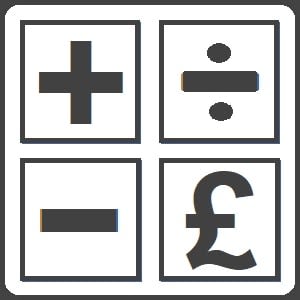Do I Need to Register for Self Assessment? Understanding the Rules

Registration for Self Assessment
The UK Self Assessment system might sound straightforward. But in reality, it’s full of grey areas and many people feel puzzled. “Do I need to register for Self Assessment?”
Surprisingly, there is no simple yes-or-no checklist. That’s why you’ve come to this post for answers, maybe. In fact, the system is built on an unusual foundation: you assess yourself. HMRC will usually not tell you to register or submit a tax return. Under statutory responsibility, you need to know when you are required to. But here’s the catch: just because they don’t stop you from making a mistake, doesn’t mean it’s not a mistake.
Self-Assessment Means Self-Responsibility
The name says it all: Self Assessment. HMRC leaves it to you to judge whether you need to report extra income, capital gains, or other taxable activity. But if you get it wrong, the consequences are very real:
• Penalties for late registration or missed returns
• Interest on unpaid tax
• In more serious cases, investigations and even prosecution if the authority decides your act is hiding taxes and deliberate
This is why we always remind our clients: “HMRC letting you make a mistake doesn’t make it okay.” They are not obligated to catch your oversight early. But if they catch it later, especially years down the line, the cost is often much higher.
Who Should Register?
You are expected to register for Self Assessment if you receive income that isn’t taxed automatically. That includes:
• Self-employed income over £1,000 (even part-time or side jobs)
• Rental income (reportable earnings over £1,000)
• Foreign income, including interest, dividends, or other earnings abroad
• Capital gains, such as from selling properties or shares
• High income and Child Benefit Charge (typically if your income is over £50,000 and you or your partner claims Child Benefit)
• You are a director of companies and receive dividend or other investment income above the tax-free allowance thresholds
• Untaxed savings interest, including from foreign accounts
• Other irregular or one-off income that HMRC isn’t aware of
In short: if your income or situation isn’t fully captured by PAYE, there’s a good chance you should be registering for Self Assessment. Well, it sounds like a lot, and indeed HMRC estimates a large number of taxpayers have not registered and filed tax returns. They are continuously investigating and identifying individuals not paying taxes properly. In recent times, HMRC has announced an increase in budget for the investigation team, with one of the main targets being to identify those people not paying taxes. Yes, the system is complex, and the picture is more complicated than it should be.
It’s Not Just About Income
Some people choose to register even when it’s not strictly required, for reasons such as:
• Claiming tax reliefs
• Paying voluntary National Insurance contributions
• Proving you’re self-employed (e.g. for maternity allowance, visa applications, or mortgage applications)
This is why we say Self Assessment is technically voluntary, but functionally essential for many.
Registration for Self Assessment Is Voluntary. Need It for Income Proving, e.g., Visa ?
Do remember, registration for Self Assessment tax return is on a voluntary basis. For example, if you need to prove your income for purposes like visa applications or extensions—which often require showing a certain level of income and tax paid—a Self Assessment tax return can be an important supporting document. It is voluntary to register if you have such a need, even if you do not fall into the categories mentioned above.
Timing Matters – So Does Accuracy
If you realise you should have been filing returns in previous years, it’s not too late—but don’t delay. The longer you wait, the more serious the potential consequences.
It’s far better to come forward voluntarily (and accurately) than wait for HMRC to find out on their own.
At our firm, we regularly help clients who:
• Missed the registration deadline
• Weren’t sure if foreign income needed to be reported
• Were incorrectly told “you don’t need to do a return”
• Are now under HMRC review or audit
You Don’t Need to Guess
We understand how vague the system can feel. If you're asking “do I need to file a Self Assessment tax return?”, the safest move is to speak to a professional. At Elaga Accountancy , we specialise in:
• Complex income structures
• Overseas income and foreign tax relief
• Non-domicile and UK residency tax issues
• Tax return reviews and late registrations
We don’t quote general guidance. We give specific, professional answers for your personal situation.
What To Do Next
If you’re unsure whether you should register, file, or correct a past return—contact us today. Let’s get clarity, reduce your risk, and ensure you meet your obligations on time.
Seek Professional Help
If you have questions about Registration of Self Assessment Tax Return, contact Elaga Accountancy now, we’d be happy to assess your company’s situation and walk you through your options. Don’t rely solely on your gut feeling or a random forum post. The team at Elaga Accountancy brings years of real-world experience to help you make confident, informed decisions, aligned with both your business structure and personal goals.
#SelfAssessment #UKTaxReturn #UKTaxAdvice #ForeignIncome #SelfEmployedUK #TaxReturnHelp
Contact Us
Send a Message
Get in touch to discuss with us how we can best assist you.
